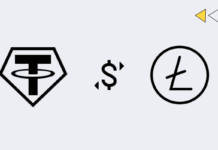Blockchain technology is built to store the transaction details, it contains the permanent data in a secure and encrypted way and assures that transactions can never be modified.
What is blockchain technology?
Blockchain is a structure to save various transaction records of the public in several databases whereas this “transaction records” are called “block” and the “several databases” are called “chain” in a network-connected as peer-to-peer nodes and this connection is called “digital ledger”
The digital signature of the owner is must in the ledger to continue the transaction, this authenticates the transaction and protect the transaction from attacks and hence the information in this ledger is extremely secure.
Inside the blockchain
Blockchain uses cryptography for secure transactions, cryptography is protecting the information by using codes that can only be processed by people how are intended to it.
Blockchain records every transaction in alphabetical order.
Blockchain in the education sector
In 2017, Melbourne university used blockchain to assign the user
credentials permitting students to share authenticated copies of their qualifications with employers and other third parties with the tamperproof system.
Innovative ways to implement blockchain technology in the higher education sector are
- Improved record-keeping
- Increases performance in the current business process
- Produces a unique market for digital assets
- Produces a disruptive business model
Why is blockchain popular?
When you are transferring your money to others by online banking, these type of transactions can be tampered, blockchain is created to secure these kind of transactions.
The three essential features that made blockchain popular are
- Highly secure: Blockchain utilises a digital signature feature to protect the transactions this digital signature feature makes it impossible to modify the data of an individual by others
- Decentralization system: Conventionally, you require the approval of administrative authorities alike a government or else bank for transactions, yet, with Blockchain, transactions are made with the mutual agreement of users emerging in smoother, more reliable, and more active transactions.
- Automation capability: Blockchain technology is programmable also can produce systematic actions, events, and payments automatically during the standards of the trigger are satisfied.
5 real-world uses of blockchain
- Data sharing: As most enterprise data goes remaining, blockchain could serve as an intermediary to save and move that data to develop a host of industries. While yet in its initial stages, IOTA holds more than 35 brand-name associates (including Microsoft being one) giving it feedback.
- Copyright: In the world of increasing internet access, ownership laws and copyrights on books, music and other things have grown vague With blockchain, those copyright laws would be beefed up considerably for digital content downloads, guaranteeing the artist or creator of the content being obtained gets their pretty share.
- Digital Voting: Worried about voter scam? Well, with blockchain there is no need to worry, blockchain technology facilitates to vote digitally, but it is transparent adequately that any regulators would be capable to see if something were changed upon the network. It merges the ease of digital voting with the unchanging nature of blockchain to make your vote count.
- Monitor supply chains: Blockchain additionally attains in particularly fit when it comes over monitoring supply chains. By discarding paper-based trails, businesses should be capable to pinpoint disorganisations within their supply chains immediately, as well as locate items in real-time. Moreover, blockchain would enable businesses, and perhaps even consumers, to observe how products worked from a quality-control viewpoint as they progressed from their place of the retailer.
- Food safety: Yet another interesting use for blockchain could happen in tracing food from its source to your plate. As blockchain data is immutable, you would be able to track the transport of food products from their source to some markets.
Conclusion
In recent years, you may have remarked numerous businesses throughout the world combining Blockchain technology is digital, distributed, and decentralized ledger holding most pragmatic currencies that are responsible for logging whole transactions without the requirement for a financial intermediary, so as a bank. In another word, it is a unique means of transferring funds or logging information.








